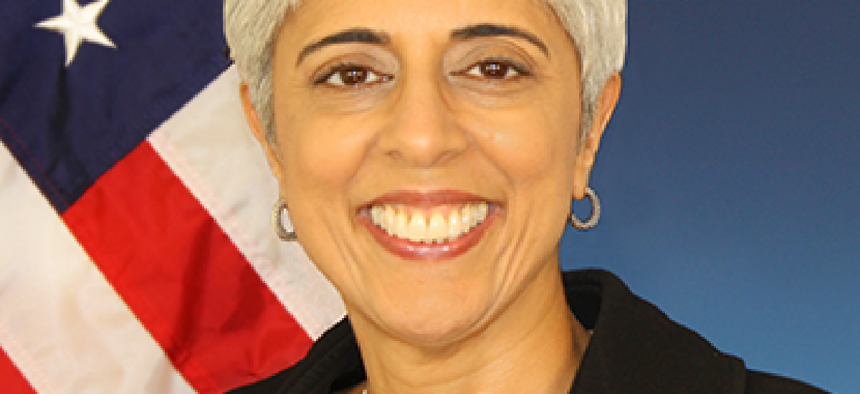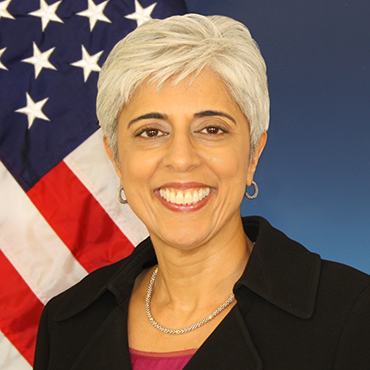Pentagon tech challenge: Adjusting to an uncertain future

As budgets decline, Pentagon officials say innovation must take over as a driver for change.

DARPA Director Arati Prabhakar: "We're not going to have much of a future...if we don't use innovation to change that cost equation."
Defense Department leaders who are worried about significant budget cuts and the accompanying uncertainties about the military's future are certain of one thing: They need more and better technology to make their long-term plans viable.
"There are areas where our adversaries will overcome our current technology overmatch, and we can adjust to that," said Lt. Gen. Keith Walker, deputy commanding general for futures and director of the Army Capabilities Integration Center, at the Defense One Summit in Washington on Nov. 14. "And then there are areas [looking toward] 2030 and 2040 that we need to adjust for just how different it will be."
Science and technology are at the heart of the future of defense, but they do not always receive consistent funding. During more than a decade of war, change has come through adaptation facilitated by the Pentagon's checkbook. But without the wartime flow of money, innovation must take over as a driver for change, Walker said.
In the Air Force, that will mean more reliance on drone programs and a smaller, more agile force, said Eric Fanning, acting secretary of the Air Force. Fanning said another round of sequestration could result in cutting as many as 25,000 people from the Air Force ranks and shrinking its fleet by 550 aircraft.
"We need to increase [spending on] technology; we need to focus on making drones more survivable for contested environments," Fanning said. "A lot of people think that as you draw down your armed forces, you can draw down your agility...but really in a small force, you need to be able to move them around and have more agility."
At the Defense Advanced Research Projects Agency, where some of the military's cutting-edge science and technologies are developed, the pressure to do more with less creates opportunities for innovation but also demands a look at broader defense policy.
"DARPA is not immune" to the uncertainty of sequestration, said DARPA Director Arati Prabhakar. "I think the really big issue is the need to fundamentally rethink the cost of the national security equation. We're not going to have much of a future...if we don’t use innovation to change that cost equation."
Prabhakar highlighted work being done to support troops in the field, including the development and fielding of mobile apps that speed the delivery of data for a more complete operational picture. In recent years, much of DARPA's work has centered on current conflicts, but by its nature, the agency is poised for more forward-looking efforts.
"Some of it is what we would think of as conventional requirements, working to get that capability to the warfighter as fast as possible," she said. "Some of it is looking into [the next generation] and stepping through to what's on the other side. We have to continue to push the technology frontier. That is literally our job."
NEXT STORY: 9 keys to avoiding another HealthCare.gov


